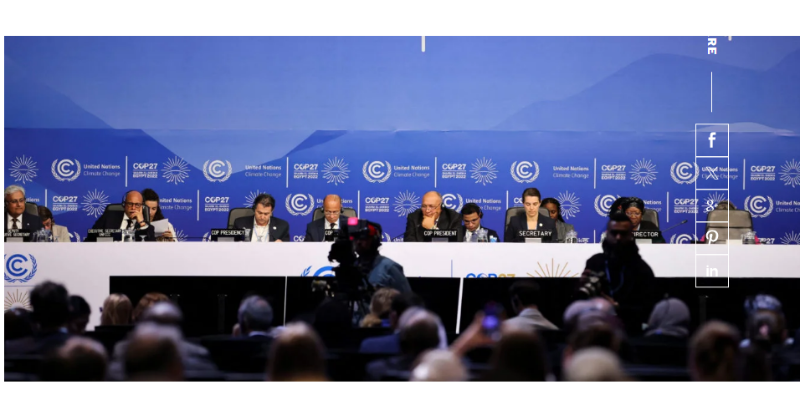
Legal trends in climate action
Legal actions against governments are seeing some interesting changes. And legal actions against governments have implications for companies and investors.
Legal actions against both governments and companies are seeing some interesting changes. While the number of cases seem to be stabilising at over 200 annually, the upcoming LSE benchmark report is apparently suggesting that litigants continue to innovate with novel types of cases and legal strategies.
And remember, actions against governments have material impacts for companies as well.
As we frequently remind investors, if governments lose legal cases and are 'forced' to take more dramatic actions, this will normally be reflected in more regulation. When you add to this increasing social pressure for action, you can easily see a viable scenario where companies are required to act. And potentially sooner and more dramatically than you might think.
Our mantra as an investor is that it's better to anticipate change, and get ahead of the curve, rather than wait for it to happen and end up scrabbling to find a solution.
So, legal actions against governments are important for investors. Which is why a blog from the Columbia Law School on future trends in this area caught our eye.
This is a What Caught Our Eye story - highlighting reports, research and commentary at the interface of finance and sustainability. Things we think you should be reading, and pointing out the less obvious implications. All from a finance perspective.
It's free to become a member ... just click on the link at the bottom of this blog or the subscribe button. Members get a summary of our weekly posts, including What Caught Our Eye and Sunday Brunch, delivered straight to your inbox. Never miss another blog post !
Future Trends in Climate Litigation Against Governments
The blog was written by the Climate Litigation Network for publication by the Sabin Centre for Climate Change Law.

First - why is this important to investors. That one is easy. As we highlighted above, regulation is a big driver of sustainability related change. And most of this regulation comes, directly or indirectly, from governments. It's not all 'you must', -such as the European Union vehicle emissions standards. Some of it is via incentives, such as the US IRA and the European contracts for differences in electricity generation. Regardless of the form it takes, government action drives regulation, which in turn changes the external environment for companies. And as always, the companies that anticipate and prepare are better set up to benefit from the changes.
We talked a bit about how these mechanisms work in a recent Sunday Brunch - It's companies that will really deliver change.

Back to legal challenges, and a quick catch up on where we are now. According to the Climate Litigation Network blog, over 80 government framework cases have been filed around the world. A framework cases is one that challenges a government’s overall efforts to mitigate climate change.
A number of these have been successful and they quote last years LSE report that says "these cases have had a significant impact on government decision making".
The main focus of these cases has been on what is called the Ambition Gap. That is the gap between what the governments plans and targets would achieve against what is needed to achieve the objectives of the Paris Agreement. Remembering that most countries signed up to this. And some of the gaps are large. So the framework legal challenges aim to close the gap, getting government plans and policies closer to what they signed up to.

Now, looking forward. The first trend they are expecting to see is what they call attacking the Implementation Gap. This is different from not aspiring to better, it's about not having a detailed plan for delivering your stated aspirations. To quote the report:
"Recently, many governments have enshrined climate targets in comprehensive or framework climate change legislation – a positive development in climate governance. Unfortunately, in many countries, there remains a significant Implementation Gap between the current trajectory of emissions based on existing policies, and the pledged or legislated targets. "
Put simply, they are asking the courts to make governments actually take concrete action.
Regular readers of our blogs will recognise this from another issue we write about a fair bit, the implementation gap for companies. Many companies have set Net Zero or similar targets. But they lack the detailed and concrete actions to deliver this - or if they do have them, they are not telling us about them ! We wrote about this recently, which you can read here.

These are the legal cases that will impact companies more than those aimed at closing the Ambition Gap. So, one way to describe the changes they are expecting is 'they are suddenly going to become very real'. No more vague promises.
And the second upcoming trend is bridging what they call the Integrity Gap. This is what we often call kicking the can down the road. Where governments and companies say 'yes, we do have a plan, it's just it relies on some new technology that is as yet unproven (like carbon capture), or a solution that will take decades to build (like new nuclear), or something that they will only invest in at scale in the years around 2040 (and in the meantime it's business as usual).
This one is subtly different from the Implementation Gap in that it can appear that you have a plan, and often one that the public likes, but actually it's a plan 'built on sand' (Editors note: as an engineer I like these analogises, but sometimes they need explaining. In this case buildings that have foundations of sand often fall over).
And why do the public often like it - because it has no cost, at least not one that appears in our utility bills or the costs of the goods we buy. But these plans often do not stand up to scrutiny.
The report highlights that:
Recently, leading international lawyers and climate scientists published new research that warned that States which over-rely on future carbon dioxide removal techniques or CDR to meet Paris Agreement targets could fall foul of international law.
This line of legal challenge will also have implications for companies. If courts decide it's not valid for governments to rely on this type of non-solution, then we should expect the same to apply to companies.
The bottom line is that legal challenges to governments will impact companies, and potentially sooner than we think. So all investors need to start watching this space. It could turn out to be more important than you think.

Please read: important legal stuff.




